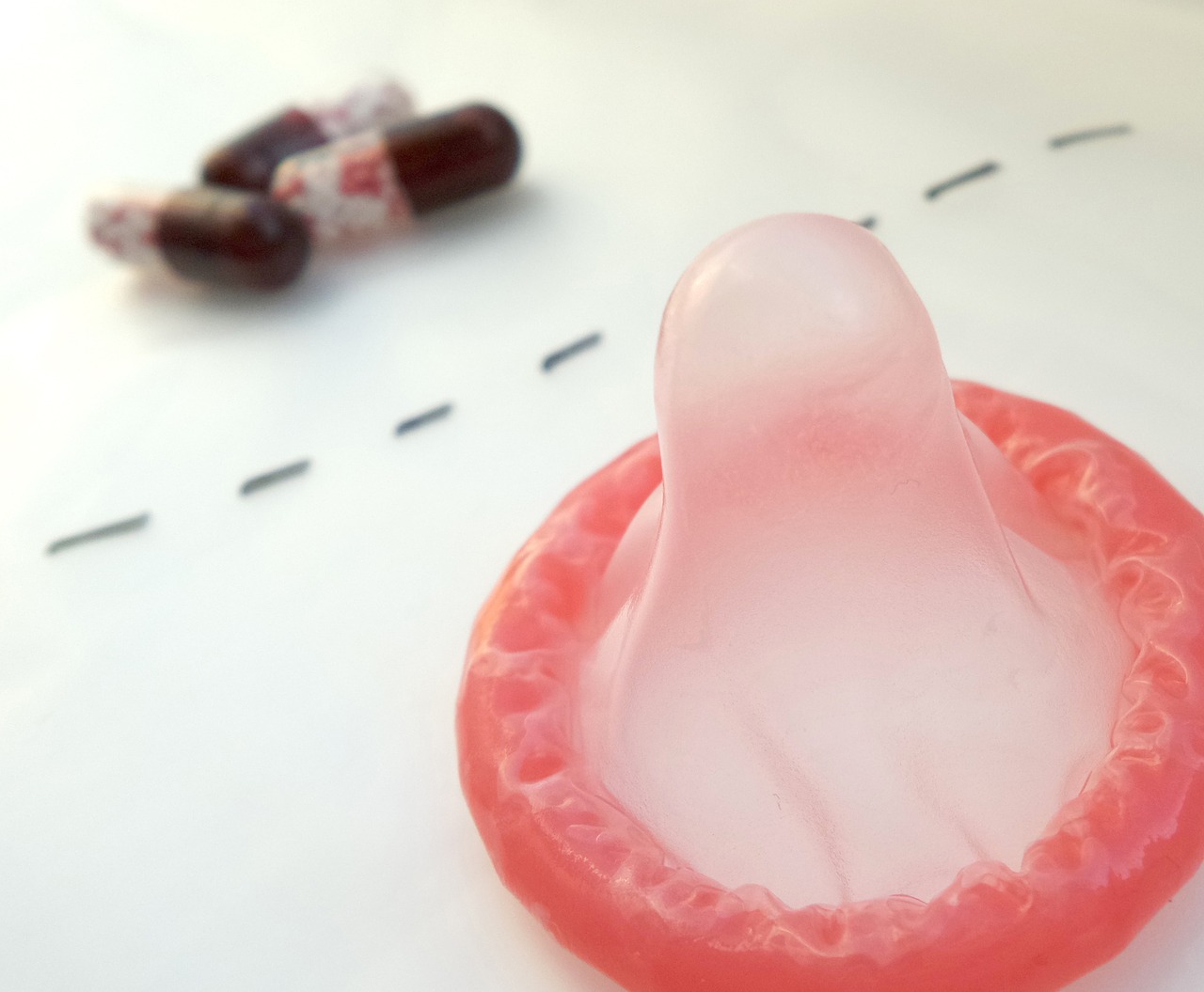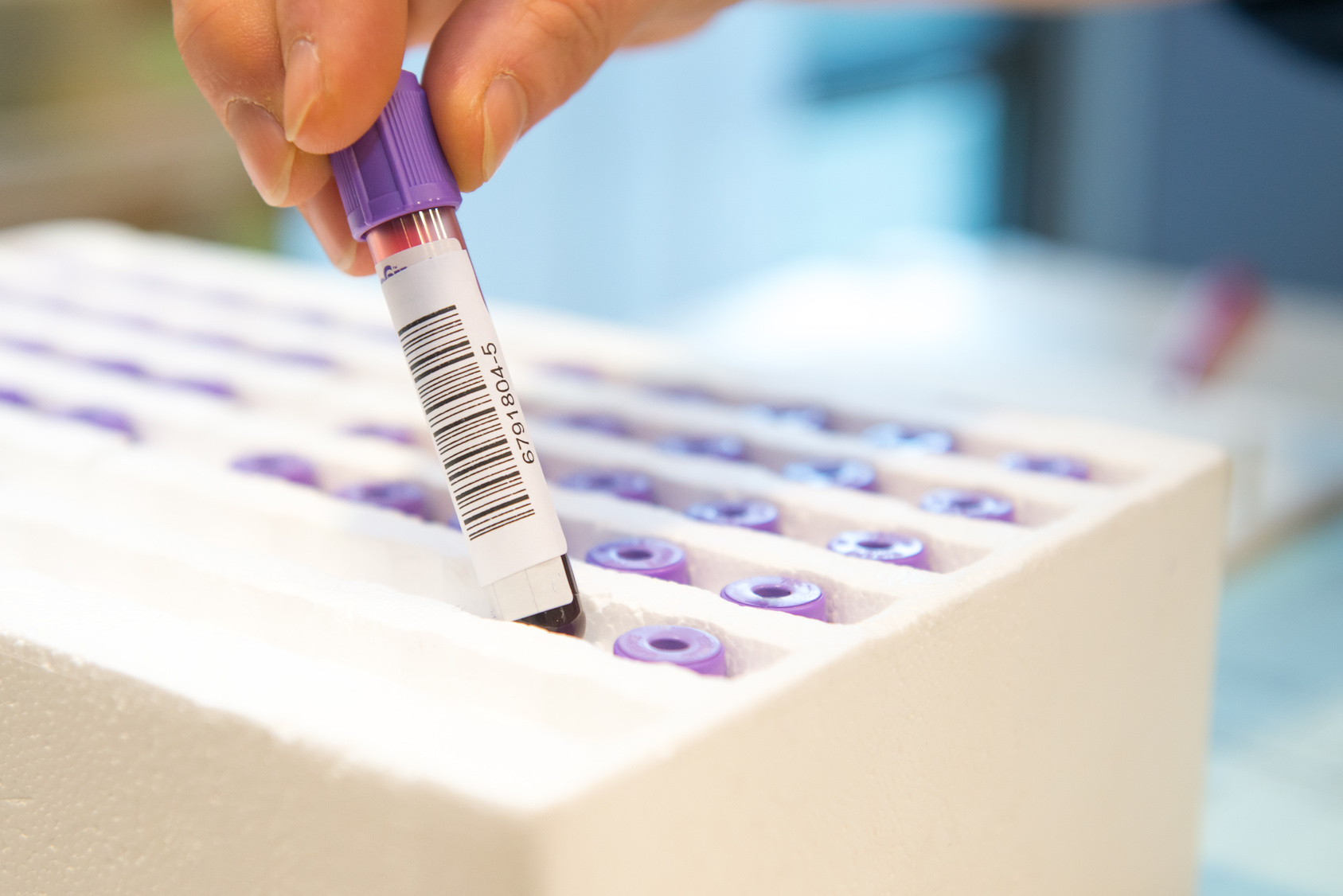Sex is fun. Plain and simple. Whether you like playing around with your faithful, committed partner, or prefer getting kinky with various people you meet through an app or at a bar, you’re sure to enjoy most of your sexual encounters.
And there’s usually no harm in that, as long as you play it safe. Sex is good for you, and you shouldn’t refrain from hooking up and reaping the benefits of casual sex.
Today it’s easy to find a girl to hook up with online. Most gals and guys meet through apps and sites these days, simply because it opens up many possibilities to get to know various interesting people.
Women are also feeling more empowered and are free to explore their sexuality, finding the right guy with a simple swipe to the right.
However, no matter how fun and enjoyable sex is, there are some threats that come with it. Unwanted pregnancies and STDs are risk factors that everyone should keep a close eye on.
Especially when it comes to STDs, it’s extremely important to get tested regularly. So, let’s see how often you should get tested, and how you can keep it confidential.
When You’re in a Monogamous Relationship

Good and safe sex is the best kind of sex. And it’s important to practice it regardless of your relationship status.
Now, a monogamous relationship is not exclusively a committed one. You can be completely monogamous with your casual sex partner, and very often this is part of the agreement. Basically, the more people you have sex with, the more you’re exposed to STDs and STIs.
This is why a lot of people interested in casual sex prefer to stay monogamous in these arrangements and prefer it if their partners did the same. That way, they limit their exposure to infections and diseases.
When you’re in a monogamous relationship, it’s recommended that you get tested at least once a year. Even when you’re in a committed monogamous relationship.
What most people don’t realize is that many STDs and STIs are asymptomatic. This means that often there are no signs or symptoms of having the disease whatsoever. And the diseases can stay dormant for months, even years. This is why annual testing is highly recommended.
When it comes to committed relationships, if your partner contracts STDs, you shouldn’t jump to conclusions and assume they’ve been cheating. While they’re named sexually transmitted diseases, not all of them are exclusively so, some can be transmitted through skin contact or other means.
When it comes to chlamydia or gonorrhea, for example, women infected by them might not develop symptoms but could transmit the diseases to their male partners who most likely will. At this point, men are often accused of cheating, even though the woman might have been the source.
All of this is to show why it’s in your and your partner’s best interest to get tested annually for STDs and STIs.
When You Have a New Sexual Partner

One in two sexually active people will contract an STI by the age of 25. This is a scary statistic, and the risk of contracting STDs/ STIs increases with each sexual partner you have.
This might sound like really bad news for everyone interested in having casual sex with various people. The only way to be sure you haven’t contracted any diseases is to get tested regularly.
If you’re the type of person who every so often has a new sexual partner, it’s advisable to get tested after every sexual encounter with a new person.
Keep in mind that it takes some time before your body notices the infection, and it could take some time before you get the results back. Most often, you’ll receive the results within a week or two. But there could be some lag time, and you could get the results a whole month after getting tested.
This could cause some inconvenience, and it’s, of course, possible to contract a new STI if you become sexually active with another person in the period between getting tested and receiving the results. Because of this, it’s usually a good idea to go celibate for a moment.
Sex is great, and a lot of us want to have it daily, or better yet multiple times a day. But you have to prioritize yourself and your health. When you get tested for STDs/ STIs, it’s better to wait for the results before you continue your sexual activity with new partners. This way, you don’t have to constantly be on your toes and worry. If the results are negative, you’re good to go on your awesome sexual adventures.
To stay on the safe side, test yourself after every new hookup, and wait for the results before finding another partner.
When You Have Multiple Partners

Threesomes are awesome, and the ability to have multiple casual sex partners whenever you want and however you want can be so liberating. Some of us love the excitement of having a new sexual partner every week or even every day, and there’s no shame in that. You do you!
However, as mentioned, with new sexual partners, you open yourself up to the risks of contracting sexually transmitted diseases, and that’s not so awesome, not at all. So, what should you do if you’re really, and I mean really, sexually active?
Getting tested after every single new sexual encounter is super inconvenient, and doesn’t sound reasonable nor possible, to be honest. You’re at a higher risk of catching an STD than the average person if you’re constantly having sex with new partners, and that’s why it’s better to get screened more often. Once a month would be advisable. For most people, this seems like too often, it would take more time, money, and it’s overall inconvenient.
If this seems like too much for you, then you should get tested at least once every 3 months. This way you’ll be in the know, keeping yourself and your partners safe. The importance of getting tested so regularly lies in the fact that STDs are basically like any other disease.
In the case that you contract it, the sooner you find out about it, the easier the treatment will be, and the sooner you’ll be able to get back to your normal life.
The Perfect Testing Schedule for You

The thing is, all of the schedules mentioned so far, getting tested annually, quarterly, or monthly, are simply recommendations and doctors’ advice. And you should know that different types of sex will require different testing methods as well. If you’re constantly having unprotected oral or vaginal sex, you’ll very likely need a blood test, and it’s in your best interest to give a urine sample, and get urethral and throat swabs. For unprotected anal sex, you’ll need an anal swab as well.
Depending on your lifestyle and preferences, you should determine which testing schedule is the perfect one for you. Talk openly with your doctor so that they can help you find out what you should do. If an annual test will have you feeling worried about your health throughout the year, opt for more regular screenings.
On the other hand, even if you’re not the type of person who’s constantly worrying about their health, test yourself at least annually. Honestly, getting tested once a year is neither expensive nor too time-consuming, and it will keep you and your partners safe and in the know.
It’s true that you are the only person who should truly be paying attention to your own health, but it takes two to tango, and it takes at least two to have sex. By delaying your STD testing appointments, you’re not only putting yourself at risk, but you’re also putting all of your partners as well.
For casual sex to stay fun and safe, your top priority is making sure you’re healthy. When you know that everyone’s getting regularly tested, it’ll be much easier to relax and enjoy the experience to the fullest, with no worries in mind.
What Should You Get Tested for?

There are unfortunately many STDs and STIs out there. Some are more common than others, and when you schedule an appointment with your doctor, it’s best to communicate with them openly so that they can give you advice on which tests you should take.
Some of the most common STDs/ STIs include:
- Chlamydia
- Gonorrhea
- HIV
- Syphilis
- Hepatitis B
- Herpes
Chlamydia is the most common disease in the US, but luckily, it can usually be easily treated with antibiotics. It’s the same with gonorrhea. They can spread through vaginal, anal, and oral sex, and most people don’t develop any symptoms, so they often don’t even know they have them. Even though they’re easily treated and commonly asymptomatic, they can lead to very serious health consequences if left untreated. You cannot contract them from casual contact, only through infected fluids.
HIV is a more serious disease that could cause AIDS. Many people can spend years with HIV without realizing it, and unfortunately, there’s no cure for it. However, when noticed early on, treatments can be very effective. They won’t eliminate HIV, but they can help you lead a long and healthy life. Some HIV medicine can lower or even stop your chances of spreading it to others.
Most STDs and STIs are treatable and won’t cause permanent damage if noticed early on. This is why regular testing should be your top priority. Your doctor will let you know which diseases you should get tested for, so listen to their advice.
How to Keep It Zipped When You Get Tested

STDs and STIs are taboo in many societies. No one talks about them, no one likes hearing about them, and anyone who has them wants to keep that a secret.
Unfortunately, even if you don’t have any diseases or infections, there’s a lot of social judgment just for getting tested for them.
This should never deter you from scheduling a test! Staying in the know about your health is crucial. Having an annual STD/ STI check will keep you and your sexual partner(s) safe.
If you’re worried about people finding out, there’s really no reason to be. The doctors, nurses, and medical staff are aware of the stigma that surrounds these tests, and all reputable clinics such as STDcheck ensure complete confidentiality.

STDcheck is a clinic that provides both convenience and confidentiality. You can order the test online if you want to avoid any awkward encounters, and if you’re in a hurry to find out the results, this is one of the fastest clinics out there, and you’ll get the results in about 1 to 2 days.
In case anyone’s tested positive, the physicians are there to offer guidance, discuss treatment, and answer any questions. Privacy and affordability are their top priorities, so you can be sure that your information will stay safe from prying eyes.
Your medical records are your own. What you get tested for, and all of your results will be completely confidential. If you’re over 14 years old, everything about your Medicare is kept confidential, even from your parents.
You should know that the government occasionally needs data about STDs and STIs, and in such a situation, certain information is shared. However, this is only for statistical purposes. None of your identifiable information, like your name, address, social security number, etc., is ever shared.
So, don’t be afraid, and don’t be worried about keeping your information safe, because it is safe. It’s up to you to decide with whom you want to share this information.
How to Protect Yourself

First and foremost, it’s important to remember that there’s really no way you can tell whether someone has STDs/ STIs just by looking at them. As mentioned, you or your partner might have a disease without even knowing it, and you could spread it to others.
The only way to protect yourself is to use the proper protection! Contraceptive pills keep you from getting pregnant, they will not keep you from contracting a disease. Condoms are a must. While they’re not 100% safe, they’re a hundred times better than no protection at all.
When it comes to casual sex, whether you’re a man or a woman, you must have protection at hand. The key to having fun is being safe, and your safety is your concern, not someone else’s. So be prepared at all times. Use condoms, and use them well. Most of the times when condoms fail, it’s because they aren’t used correctly. So, take the time to read the labels, pay attention to the instructions and keep yourself safe.
Casual sex can be so much fun, and it can actually be great for your health. But staying safe during sex is not an option, it’s a must. Talk openly with your partner about protection, and remember to get checked for STDs regularly. Other than this, all you should do is bring your wildest fantasies to life and enjoy having awesome sex.



